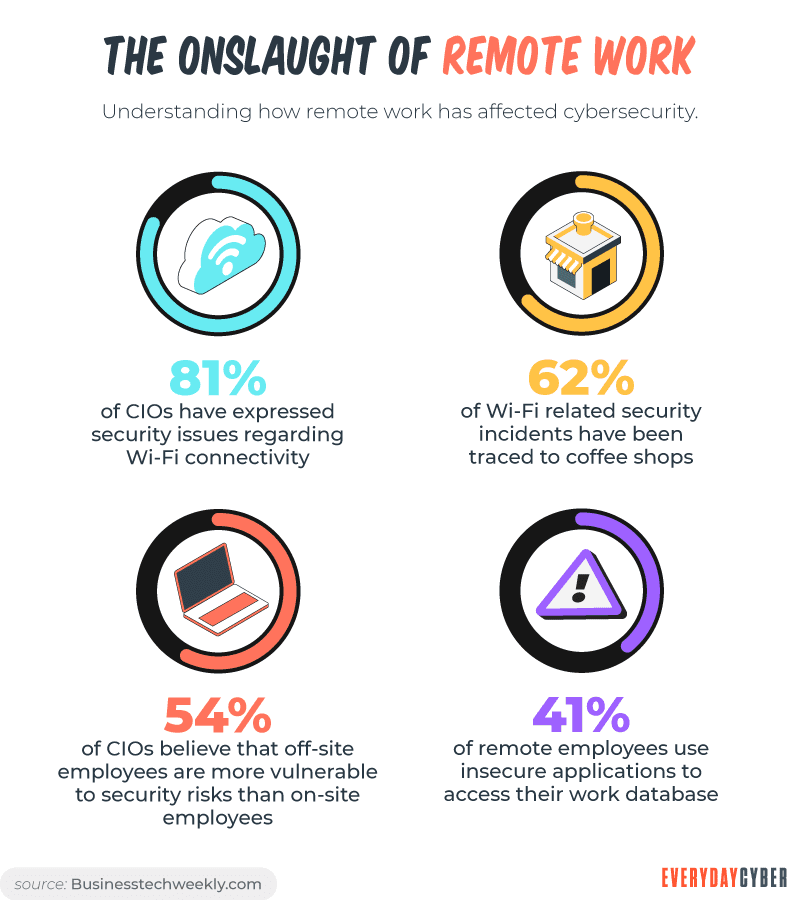Small businesses are vulnerable to various cybersecurity threats that can cause severe financial and reputational damage. Phishing attacks, malware infections, insider threats, weak passwords, unsecured mobile devices, lack of data backup, web-based attacks, IoT security risks, third-party risks, and lack of cybersecurity awareness are the ten most common risks small businesses face. To mitigate these risks, small businesses must implement advanced cybersecurity measures such as firewalls, intrusion detection systems, password policies, encryption, data backups, proper vetting of third-party vendors, and regular employee cybersecurity training and awareness campaigns. Ignoring these risks can result in substantial losses that can cripple small businesses.
1. Phishing attacks
One of the most common cybersecurity risks small businesses face is phishing attacks. Hackers use email spoofing and sophisticated social engineering tactics to trick employees into giving away sensitive data, such as login credentials or customer data. These attacks can be devastating, as they can lead to large-scale data breaches, financial loss, and reputational damage.
2. Malware infections
Malware, such as viruses, spyware, and ransomware, can infect small business computers and networks, steal sensitive data, or cripple business operations. Malware can be introduced through email attachments, malicious downloads, or unpatched software vulnerabilities. Small businesses must regularly update their antivirus software and deploy advanced network security measures, such as firewalls and intrusion detection systems, to prevent malware infections.
3. Insider threats
Small businesses also face risks from insider threats, such as employees or contractors with access to sensitive data or systems. Insider threats can intentionally or unintentionally mishandle data, steal intellectual property, or cause other damage to the business. Small businesses must institute strict access controls, employee training, and monitoring programs to prevent insider threats.
4. Weak passwords
Weak passwords are a significant cybersecurity risk for small businesses, as they make it easy for hackers to gain unauthorized access to sensitive data. Small businesses must enforce password policies that require the use of strong passwords and two-factor authentication. Employees must be trained on the importance of strong passwords and the risks of password reuse or sharing.
5. Unsecured mobile devices
Mobile devices, such as smartphones and tablets, are an essential tool for many small businesses. However, these devices can also be a significant cybersecurity risk if they are not properly secured. Small businesses should require employees to use passcodes, encrypt data, and install security apps to protect against data theft and malware infections.
6. Lack of data backup
Small businesses must have a robust data backup system in place to protect against data loss due to accidents, natural disasters, or cyber attacks. Backups must be stored securely and tested regularly to ensure they can be restored quickly in case of an emergency.
7. Web-based attacks
Small businesses must also guard against web-based attacks, such as SQL injection, cross-site scripting, and denial-of-service attacks. These attacks can exploit vulnerabilities in web applications and cause significant damage to small businesses. Business owners must ensure their websites and web applications are properly secured and regularly tested for vulnerabilities.
8. IoT security risks
Small businesses that use Internet of Things (IoT) devices, such as smart thermostats or security cameras, must be aware of the security risks associated with these devices. IoT devices can be hacked and used as entry points for cyber attacks on small business networks. Small businesses must ensure IoT devices are properly secured and regularly updated with the latest security patches.
9. Third-party risks
Small businesses often rely on third-party vendors for software, cloud services, and other critical business functions. However, these vendors can also introduce cybersecurity risks to small businesses. Small businesses must vet third-party vendors for security risks and ensure their contracts contain appropriate security and data protection provisions.
10. Lack of cybersecurity awareness
Perhaps one of the most significant cybersecurity risks small businesses face is the lack of cybersecurity awareness among employees. Many employees are not aware of the risks associated with cyber attacks, and do not know how to spot and report suspicious activity. Small businesses must provide regular cybersecurity training and awareness campaigns to educate employees on security best practices and the importance of cybersecurity.
